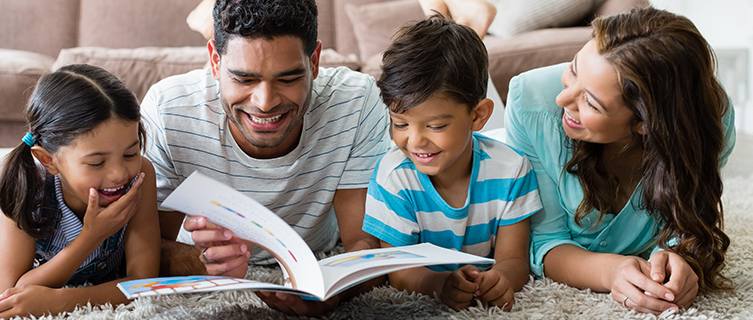The way our bodies and minds are designed causes us to respond to high stress situations as a form of self-preservation. If our brain perceives a threat, it activates the amygdala, the body’s alarm system, which leads to an instinctive response without conscious thought. Although this mechanism is meant to protect us, it cannot distinguish between actual and perceived dangers.
In parenting, our stress response can be triggered by everyday events that are not actually dangerous, leading us to lose control and let emotions dictate our reactions. By practicing mindfulness and pausing before responding, we can teach children to do the same and choose their responses instead of just reacting.
What Does Mindfulness Mean in Parenting?
Mindfulness in parenting refers to a conscious and intentional approach to parenting that involves being present in the moment, fully engaged and attentive to what is happening, without judgment or distraction. It involves paying close attention to one’s thoughts, emotions, and physical sensations, as well as observing and acknowledging the child’s experiences, feelings, and behaviors. Mindfulness can help parents respond to challenging situations in a more thoughtful and intentional manner, rather than reacting impulsively or automatically.

By being mindful, parents can gain a deeper understanding of their own emotional responses and the impact these responses have on their children. This awareness can help parents regulate their emotions, reduce stress and anxiety, and cultivate a more positive and supportive parenting environment. Additionally, mindfulness can foster a deeper connection with children, improve communication and understanding, and enhance empathy and compassion.
In practical terms, mindfulness in parenting can involve a variety of techniques such as deep breathing, meditation, or simply paying attention to the present moment. For example, before responding to a challenging situation with a child, a mindful parent might take a deep breath and observe their thoughts and emotions. They might then choose to respond in a more intentional and compassionate manner, rather than just reacting impulsively.
Additionally, mindfulness can be integrated into daily activities such as meals, bedtime routines, or outdoor play to create opportunities for mindful interaction with children.
Benefits of Mindful Parenting
Mindful parenting is an approach that involves being intentional, present, and aware in the moment, without judgment or distraction, while interacting with children. It is about paying close attention to one’s own thoughts, emotions, and physical sensations, as well as observing and acknowledging the child’s experiences, feelings, and behaviors. By being mindful, parents can respond to challenging situations in a more thoughtful and intentional manner, rather than impulsively or automatically.
One of the main benefits of mindful parenting is reduced stress and improved emotional regulation. When parents are mindful, they are able to observe their thoughts and emotions and regulate them in a way that is more positive and supportive. This can lead to a more positive and less stressful environment for both the parent and the child.

Mindfulness can also enhance communication and connection between parents and children. By being mindful, parents can gain a deeper understanding of their children’s experiences, feelings, and perspectives. This can lead to improved communication and understanding and a stronger bond between the parent and child. Mindful parenting can also help parents cultivate greater empathy and compassion for themselves and their children, which can lead to a more supportive and understanding parenting style.
Mindful parenting can also improve relationships between parents and children. By being mindful, parents can become more aware of their own thoughts and emotions, as well as their children’s experiences, which can lead to more positive relationships and less conflict. Additionally, children of mindful parents often have better behavioral outcomes, such as improved social skills, better emotional regulation, and increased resilience.
Finally, mindfulness can help parents develop a more resilient and adaptable response to challenging situations. When parents are mindful, they are able to be more present in the moment and respond to challenging situations in a more intentional and positive manner. This can benefit both the parent and the child and lead to increased resilience for both.
Mindful parenting offers numerous benefits for both parents and children. By being intentional, present, and aware in the moment, parents can create a more positive and supportive environment for their children and cultivate a deeper connection with them. Additionally, mindful parenting can help parents develop greater resilience, improved communication and connection, and a more supportive and understanding parenting style.
How to Practice Mindful Parenting
Practicing mindful parenting involves becoming more aware of your thoughts, emotions, and physical sensations, as well as your child’s experiences, feelings, and behaviors. It involves being intentional and present in the moment, without judgment or distraction, while interacting with your child. The goal is to respond to challenging situations in a more thoughtful and intentional manner, rather than impulsively or automatically.
One way to practice mindful parenting is through mindful breathing. By taking a few deep breaths and focusing on the sensation of breathing, you can calm the mind and body and reduce stress, especially in stressful situations. Paying close attention to what your child is saying, acknowledging their feelings and perspective, can also help improve communication and connection.

Another way to practice mindful parenting is by observing your child’s behavior and emotions without judgment. This can help you understand their experiences and develop empathy, which can lead to improved communication and connection. Taking time to reflect on your own thoughts and emotions and how they impact your interactions with your child can also help you make intentional and positive choices in your parenting.
Focusing on the positive aspects of your child and your relationship with them can also help shift your perspective to one of gratitude and positivity, which can be a valuable tool in managing difficult parenting moments. Engaging in activities with your child that encourage presence and connection, such as playing games, doing puzzles, or engaging in imaginative play, can also be a fun and mindful way to connect with your child.
Using “I” statements and avoiding blaming language can help improve communication and reduce conflict. Taking time for yourself to recharge and engage in self-care activities, such as exercise, meditation, or hobbies, can also help you be a more present and mindful parent.
It is crucial to remember that mindful parenting is a journey, not a destination. The goal is to cultivate awareness and intentional choices in the moment, rather than trying to control or change everything. With practice and patience, mindful parenting can lead to a more positive and supportive family dynamic.

